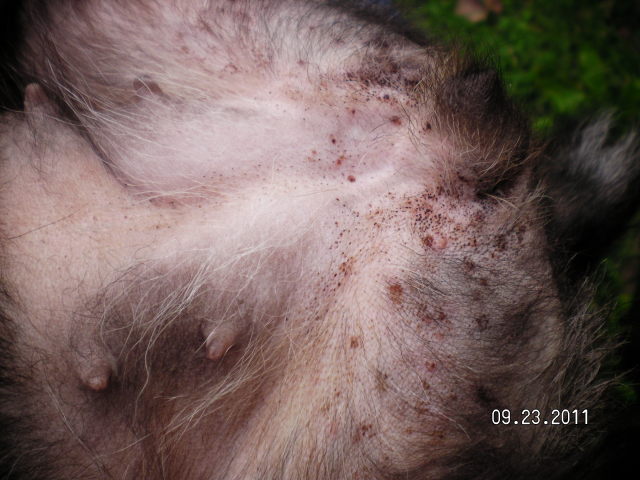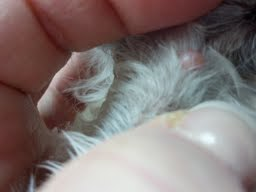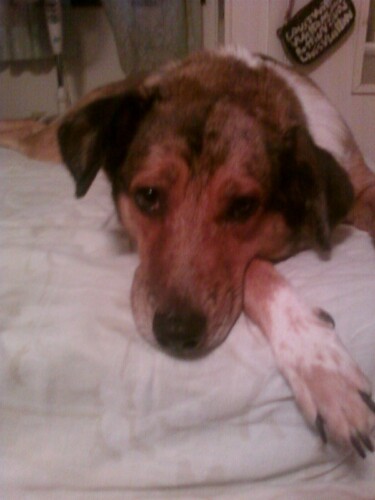QuestionI noticed today that my 3yr old female Boston Terrier had a swollen knot protruding partially from her rectum. First time I've seen this. For the most part she acts fine, playing with other dogs.What can this be and because this is on a weekend, should I contact the vet immediately?
AnswerSounds like your dog may be having a Anal glad issue.. Dogs have two anal glands; they are located inside the lower perimeter of the rectum. One gland is on the left side, and the other on the right side. These small glands fill with waste from the body, the waste which forms inside the glands is usually made up of a thin, to thick brown fluid or paste. When the anal glands are full or become compressed during a bowel movement, the waste inside the glad releases. It normally has a very strong, fishy odor. After the waste is released, the glands continue collecting waste and the cycle starts over. This process is totally normal in dogs, most of the time it goes unnoticed because it happens during bowel movements. Dogs also release anal glad waste when something REALLY scares, or excites them. Their body tenses up, which puts pressure on the anal glands and then the fluid is released. Sometimes anal glands develop issues, one or both of the glands can become clogged, and this is called an anal gland infection. Symptoms of a anal gland infection/issue include one or all of the following symptoms, swelling around the rectum, scooting their bum across the ground excessively,trying to lick rectum, whimpering or straining due to pain during bowel movements, or frequently having a fishy odor. If your dog is displaying any of these symptoms, please take them to a vet as soon as possible. Anal glad infections can be easily treated with antibiotics if the infection is taken care of early. If the issue is left untreated, the gland may need to be lanced open in order to remove infection from the glad, ouch! If left without treatment even longer, expensive surgery for the complete removal of one or both glands may be necessary.

 dog has spots
Question
spot on back
my dog is a puggle pom mix
dog has spots
Question
spot on back
my dog is a puggle pom mix
 Small growth my dogs face
Question
growth photo 2 growth photo 3
Hi.
Small growth my dogs face
Question
growth photo 2 growth photo 3
Hi.
 My dogs chronic ear allergy infections
Question
Hiedi
My dog whom is three years now-part Aust
My dogs chronic ear allergy infections
Question
Hiedi
My dog whom is three years now-part Aust
 regurgitation
QuestionMy Cat is 4, indoor, and quite small with short
regurgitation
QuestionMy Cat is 4, indoor, and quite small with short
 Female Tortie cat 7 years old
Question
Sadie
My cat sadie gets a re-occuring sore in
Female Tortie cat 7 years old
Question
Sadie
My cat sadie gets a re-occuring sore in